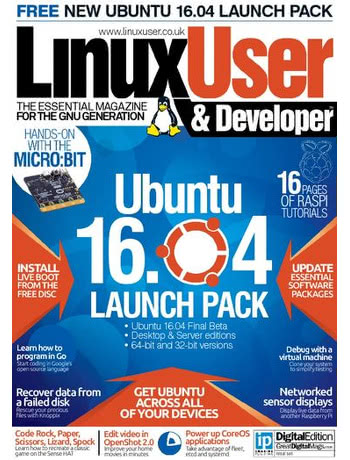
The BBC Doctor Who HiFive Inventor Coding Kit is an interesting mash-up of ideas. From the BBC’s side is the Doctor Who IP, with current Doctor Jodie Whittaker loaning her voice to the step-by-step programming lessons which are unlocked with a single-use code included in the box; SiFive, meanwhile, provides the hardware platform, a hand-shaped microcontroller development board based on its RISC-V microcontroller cores.
It doesn’t stop there, though: the HiFive Inventor was originally launched solo as a device “inspired” by the BBC micro:bit – an inspiration which runs so deeply it’s entirely possible to use BBC micro:bit accessories with the HiFive Inventor’s edge connector. Now, the board is available exclusively as part of the BBC bundle – though apart from a new colour, it’s entirely unchanged in design.
The Raspberry Pi Pico, on the other hand, is a lot simpler to trace: it’s a wholly in-house creation from Raspberry Pi, representing both its first microcontroller board and the first outing for its RP2040 microcontroller chip – the first product of its application-specific integrated circuit (ASIC) team. Designed to offer a wealth of functionality, including clever programmable input/output (PIO) state machines, at a very low cost, the Raspberry Pi Pico is proving a device to watch.
Finally, Initiating Paraneon is a short graphic novella designed to act as a precursor to Robert Willis’ upcoming Paraneon comic book series. Billed as being written by hackers for the next generation of hackers, it’s a book that wears its inspiration – from 2000 AD to The Matrix – on its sleeve, but sadly never truly comes out of the shadow of its forebears.
Custom PC Issue 212 is available now at all good supermarkets, newsagents, and online via the official website.

 In this month’s Hobby Tech column I take a good long look at the BBC micro:bit, CubieTech’s latest Cubietruck Plus (Cubieboard 5) single-board computer, and a pack of Top Trumps-inspired playing cards based on vintage computers.
In this month’s Hobby Tech column I take a good long look at the BBC micro:bit, CubieTech’s latest Cubietruck Plus (Cubieboard 5) single-board computer, and a pack of Top Trumps-inspired playing cards based on vintage computers. For my regular review in Linux User & Developer this month I had the great pleasure to spend time with the BBC’s first serious hardware project since it teamed up with Acorn in the 80s: the BBC micro:bit.
For my regular review in Linux User & Developer this month I had the great pleasure to spend time with the BBC’s first serious hardware project since it teamed up with Acorn in the 80s: the BBC micro:bit.